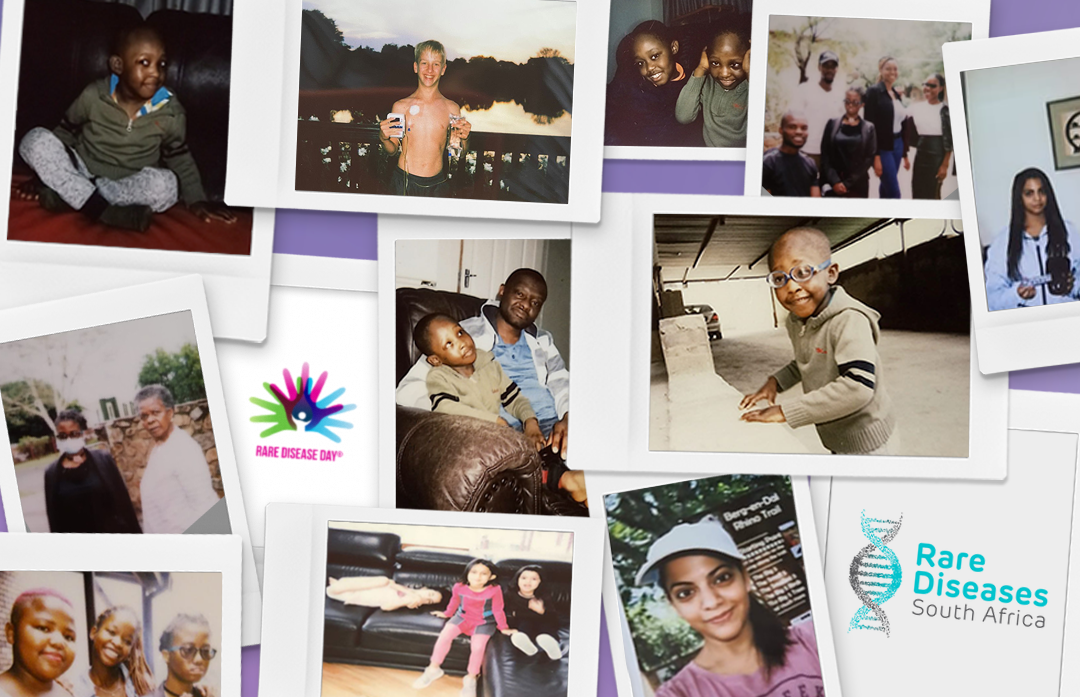
February 9, 2022
Ahead of Rare Disease Day, Illumina is recognizing four rare disease patient organizations around the world. RDSA is the second in our series this month.
Kelly du Plessis, CEO and Founder of Rare Diseases South Africa (RDSA), was a young, first-time mom when she started noticing that things with her infant son, Juan, were not adding up. When she brought up the matter to her doctor, he thought that it was actually the mother who had the issue and diagnosed her with postpartum depression.
“I was being broken down as a parent,” notes du Plessis. “You are automatically trained not to trust your instincts but to trust what a doctor is telling you instead.” This is a common story among parents of children with rare diseases, but for du Plessis, it motivated her to fight even harder to find an answer for her son’s condition. After physically sitting in the waiting room all day for the opportunity to see a pediatrician (she was unable to book an appointment), the doctor finally saw her, and after examining Juan, admitted him to the hospital for additional testing.
After six weeks of waiting for the test results, du Plessis received a call from the receptionist at the doctor’s office who casually mentioned that her son had a rare metabolic disorder called Pompe Disease and scheduled an appointment for the next day. After searching the diagnosis on the internet and seeing that most children with this disease don’t live beyond eight months (Juan was 11 months), du Plessis came to realize just how stressful and difficult the diagnosis process was for families. “I kept thinking that maybe I could make it somewhat easier for the next person in this situation,” says du Plessis.
"I kept thinking that maybe I could make it somewhat easier for the next person in this situation."
Over the next few months du Plessis learned how to navigate the medical community and how to fight for the treatments her son needed. As part of her journey, she started sharing what she learned with other parents facing similar circumstances and became an advocate for them and their children. And in 2014, RDSA was born—an organization dedicated to reaching South Africa’s rare disease patients and caregivers, as well as raising awareness with the general public.
Since its inception, RDSA has worked hard to formalize the definition of rare disease in South Africa and to standardize reference points for diagnostic times and evaluation plans.

Juan, Kelly's son, was diagnosed with Pompe Disease at 11 months old
There are currently more than 4.1 million individuals in South Africa living with a rare disease, yet many of them, as well as their families, are often left coping alone and in silence.
And while there are more than 6,000 individual rare genetic conditions, rare disease is collectively common. Genetic diseases affect about 300 million people worldwide, the vast majority of whom are children. In South Africa alone, one in 15 will contract a rare disease at some point in their lives.
Illumina recognizes Rare Disease Day and extends it to the entire month of February in order to highlight and support various organizations. This year we are focusing on SLC6A1 Connect in the US, ASrid in Japan, NoRo in Romania and Rare Diseases South Africa. Illumina’s patient advocacy team sent Polaroid cameras and asked these four organizations to capture a day in the life of a rare disease family. We received hundreds of photos and anecdotes from families on four continents, some of which you see here (stay tuned for more throughout the month). We hope that the images will convey the good and the difficult.
“We want to highlight the fact that rare is actually everywhere,” says du Plessis. “Rare traits are not limiting, and everyone has special, rare, qualities.”
“We want to highlight the fact that rare is actually everywhere.”


